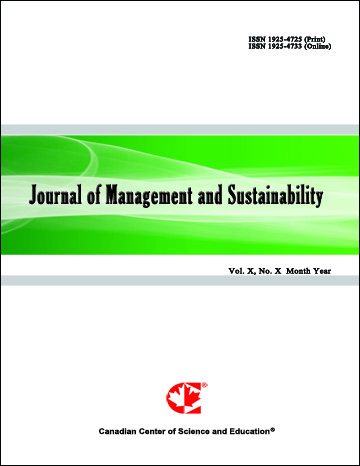Role of Agriculture in Reducing Consumption Expenditure in Nigeria
- Cordelia Onyinyech Omodero
- Amah Kalu Ogbonnaya
Abstract
There is a general consensus that agriculture as an economic sector has contributed so much to the well-being of the Nigerian people, this understanding is without a thorough evaluation of the specific sub-sectors of agriculture and their individual contribution especially in reducing the cost of living in the country. This study tries to investigate the role of the four sub-sectors of agriculture in Nigeria in reducing consumption expenditure. The study employed time series data which covered a period from 1981-2017 and were obtained from CBN Statistical Bulletin, 2017 edition. The data were collected on the four agriculture sub-sectors which include: crop production, fishing, forestry and livestock (being the independent variables) and on consumer price index (dependent variable) used as proxy for consumption expenditure. The Ordinary Least Squares (OLS) method of multiple regression analysis was used to analyze the data. The findings revealed that crop production and livestock farming have significant positive impact on consumption expenditure while fishing had insignificant negative impact, then forestry had significant negative impact on CPI. The implication is that fishing and forestry farming require more investment to contribute positively to the Nigerian economy. Therefore, the study has suggested among others that the government should provide adequate funding for agriculture sub-sectors through access to bank facilities with less difficulty on the part of the farmers.
- Full Text:
 PDF
PDF
- DOI:10.5539/jms.v8n4p130
Journal Metrics
Google-based Impact Factor (2021): 1.54
h-index (July 2022): 37
i10-index (July 2022): 147
h5-index (2017-2021): 12
h5-median (2017-2021): 19
Index
- Academic Journals Database
- ANVUR (Italian National Agency for the Evaluation of Universities and Research Institutes)
- CAB Abstracts
- CNKI Scholar
- EconBiz
- Excellence in Research for Australia (ERA)
- GETIT@YALE (Yale University Library)
- Harvard Library
- HeinOnline
- Infotrieve
- JournalTOCs
- LOCKSS
- MIAR
- PKP Open Archives Harvester
- RePEc
- Scilit
- SHERPA/RoMEO
- Stanford Libraries
- UCR Library
Contact
- Evelyn XiaoEditorial Assistant
- jms@ccsenet.org
